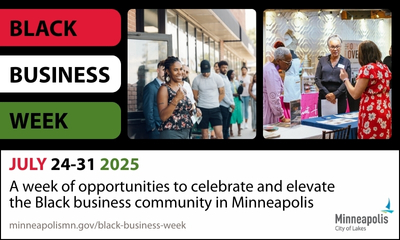We are electing School Board members this November: two citywide candidates and three in districts—two of these districts are Southsiders. Incumbents Nelsen Inz and Said Ali from the two Southside districts are currently unopposed DFL- and union-endorsed and seemed positioned to cruise to reelection. Opponents will likely emerge when the June filing time comes, but no one has come to my attention as of yet.
In the citywide race, incumbent Rebecca Gagnon is running for reelection although she was denied both the union and DFL endorsement. Two opponents, Kimberly Caprini and Joshua Pauly, both with union support, easily won the DFL endorsement on the first ballot over Ms. Gagnon and Cindy Booker. In the past, the combination of union and DFL endorsement has been unstoppable, except when very big money’s been involved. We have seen no sign of that this year, but again, filing is not until this June. Doug Mann is also running—more about him later.
Now for the real story. The district is in trouble. Yes, there is trouble, trouble, trouble right here in River City. The schools have been cutting our budget every year in the last decade and this year we have the largest budget deficit in memory. $33 million out of about $645 million in the general fund. And there is very little fat left.
The board hired a new finance director a few years ago named Ibrahima Diop, a man with over 20 years of experience in school finance leadership to go over the budget with a fine tooth comb. He, along with Superintendent Graff, hosted community budget discussions to discuss what they had done, and what steps were available to them to meet the oncoming challenges. The board members, of course, participated in these community meetings.
They explained that the cuts came from decreasing enrollment, mostly from loss of students to charter schools, movement out of the district and the decreasing birthrate five to seven years ago, underfunded state and federal funding for mandated special education and English Learner services (which still were paid to charter schools) and rising utility and transportation costs. These costs should have been decreased as income fell, but as the buildings are fixed costs, and transportation is very difficult to manage, expenditures were not decreased. The district was living beyond its means.
The board announced immediate hiring and travel restrictions and Superintendent Graff recommended cutting two days of school. The board also decided to put two referenda on the November 2018 ballot asking the voters of Minneapolis for a total of $30 million dollars. This seems to be to be the right thing to do. If you have done what you can to cut the budget, and you need more money to meet your responsibility, then you need to do what you can to seek authorization to get more revenue. This is the system the legislature has put in place.
After this process, the administration came to the board with a proposal to change the budget for the upcoming (2018-2019) school year. The cuts mostly affect high (secondary) schools. There were two budget areas affected mostly. One was a $6.4 million in additional funding that the schools had received to expand course offerings by moving from a six-period to a seven-period day. This involved hiring more teachers but also delivered enriched curriculum. The other major adjustment was to the formula for disbursing Title I (poverty assistance) funding. The only measure of poverty the district has, is the percentage of students qualifying for free and reduced lunch. This threshold was raised from 35% to 40%. This left two schools who were between 35 and 39% out in the cold, Southwest and Washburn.
When the effect of these budget cuts were released, holy heck ensued. Parents organized, Washburn parents particularly, but also Southwest and other parents. They called board members. They called legislators, City Council members, editorial writers and donors, and THEY called board members. They kept calling. Board member Rebecca Gagnon prepared a resolution calling on the administration to roll back $6.4 million of the cuts. The result of this would restore more money to the lower poverty schools than to the higher poverty schools cried the critics.
In the April Board Meeting the resolution passed to a packed house, 5 to 4. Board Member Arneson, who voted no, said, “This resolution created a budget that centered around an inequitable premise that could perpetuate racial disparities in our city.” Kim Ellision, who also voted no, declared, “We said that the voices of the parents we heard from were more important than the values we had set as a board. That’s on us.”
Nine former board members (I was not asked to participate) signed a letter to the Star Tribune decrying the process and calling the board’s decision political and dysfunctional. This single vote likely led to Rebecca Gagnon’s loss of DFL endorsement and may likely lead to her not getting reelected.
I do think that it was a very poor decision-making process. The administration did its due diligence in developing its budget proposal and the board made a decision based on pressure and not sound budgeting process. On the other hand, it is a bridge year and the public’s good will is necessary to passing the referendum. A lot depends on passing the referendum and the elected officials are in the best position to judge the electorate.
The most important fight in education right now, in my opinion, is against the so-called school “reformers.” These are the very organized, very well-financed groups that don’t believe in a public educational system run by an elected board of education; that think teachers, or at least the teachers we have, and certainly teachers who are organized in a union are the problem in education; and that the free market is where we will find the solution to better education. We have only one acknowledged reformer on the board right now, that is Josh Reimnitz. Rebecca Gagnon was always a useful and effective foil for him. I am not clear how either Kimberly or Josh will fall out on this important fight. I will be sorry to see Rebecca leave the board.
Now on to Doug Mann. He has run for School Board so many times I have lost count. I have talked to him, consider him a friend, and really wish he would run more effectively. I agree with him on a lot, no, most, of his issues, but am dismayed by his unwillingness to make allies and campaign successfully. His critique of the reformers in education is accurate and insightful. His analysis of why new teachers are routinely assigned to the low-achieving schools has never been adequately addressed by the district and I am mystified as to why. His raising of the terrible treatment of high level special education students in what amounts to jail-like conditions is absolutely accurate. I just wish he would speak better, get out more, talk to the MFT (Minnesota Federation of Teachers), and make more friends. Getting elected politically isn’t about being right, it is also about working with people. I love you man, but fighting the good fight is not always enough, sometimes winning is good too.























